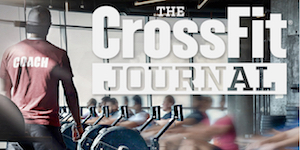
So, after a couple hundred or so squats, presses and deadlifts the first day, we came back for more on Sunday. We started with a review of the most complex of the basic movements, push jerk and medball clean. Two things were quite apparent. 1. My legs were realllly sore. 2. Everybody was getting it. The chance to sleep on it gives the brain a chance to process the information; the next day things come together much better.
Afterwords we had a lecture on nutrition. What we eat is the foundation of all our training. The guiding principles were the quality and quantity of our food, the proportions of protein, carbohydrates and fats, and documenting food intake. Not as controversial as recent online posts would indicate, but still radically different than the traditional Western diet.
Just before lunch came our 'treat.'. This workout, though tough, really was a treat - a team workout. It takes as long to explain it as it does to do. Here goes. There are 5 stations - kettlebell deadlift high pull (to under the chin,) pushups, box jumps, a 100 meter run and a rest station. With one team member at each station they work simultaneously, keeping count of their reps. When the runner taps the resting person, the resting person taps the kettlebell person, gets their rep number (for instance 25) and takes over, adding their reps to the team's total at that station (26, 27,...) The kettlebell guy taps the pushup guy and so on. 12 minutes for as many rounds as possible; the total of all reps except runs and rest is the team score. I started with the rest and got through three runs by the end. Our team 'Four Men Chasing 1 Lady' scored 880. I think the top score was about 1020. Here's the team:

We brought a sack lunch and stayed to watch the trainers work out on single max rep squat cleans. They were coaching each other and showed some beautiful form.
After lunch we had a an open Q & A followed by a lecture on the Glute/Ham Developer, or GHD. A potent core training tool. Then in rotating groups we worked on three other typical Crossfit skills; kipping pullups, muscleups and the snatch. While the pullups and muscleups are yet beyond me, I came away with the scalings and progressions to teach them to others.
The final presentation was on the principles and how to's of programming and scaling workouts. We took pictures (2nd picture) can you pick us out?) collected email addresses and said our goodbyes. After staggering out on used-up legs, we got take out, took showers and watched the olympics on tv.
And that's it. Kirsten and I are Level 1 Certified Crossfit Trainers. Of course it doesn't mean we know everything now. It means that we've had a grounding in understanding, performing and teaching the elements of Crossfit. What comes next is experimentation, experience and continuing education.
. . . And rest!
Ciao,
Charles
After lunch we had a an open Q & A followed by a lecture on the Glute/Ham Developer, or GHD. A potent core training tool. Then in rotating groups we worked on three other typical Crossfit skills; kipping pullups, muscleups and the snatch. While the pullups and muscleups are yet beyond me, I came away with the scalings and progressions to teach them to others.
The final presentation was on the principles and how to's of programming and scaling workouts. We took pictures (2nd picture) can you pick us out?) collected email addresses and said our goodbyes. After staggering out on used-up legs, we got take out, took showers and watched the olympics on tv.
And that's it. Kirsten and I are Level 1 Certified Crossfit Trainers. Of course it doesn't mean we know everything now. It means that we've had a grounding in understanding, performing and teaching the elements of Crossfit. What comes next is experimentation, experience and continuing education.
. . . And rest!
Ciao,
Charles









No comments:
Post a Comment
How'dja do? Waddya think?